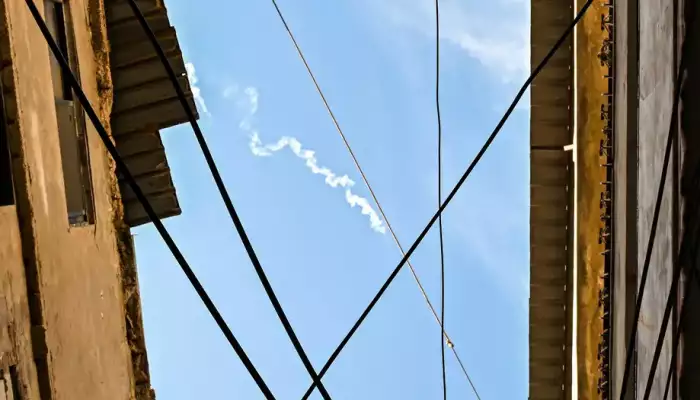
Hezbollah's leader Hassan Nasrallah said this week's attack on communications devices dealt a major blow to the group, adding that it amounts to "a declaration of war."
"Yes, we were subjected to a huge and severe blow," he said.
"The enemy crossed all boundaries and red lines."
Nasrallah said an internal investigation was underway.
The Hezbollah leader's speech was, as usual, broadcast via video from an undisclosed location.
Witnesses in Beirut told the Reuters news agency that Israeli fighter jets flew low over the city at the time the speech was broadcast. Lebanese state media also reported that Israeli jets broke the sound barrier over the capital.
Pager explosions en masse 'almost impossible to reconcile with international law,' expert tells DW
DW spoke with Janina Dill, a co-director of the Oxford Institute for Ethics, Law and Armed Conflict, about the pager and walkie-talkie explosions in Lebanon, whether they conform to international rules of warfare.
She said the principles of "distinction" and "precaution" were particularly in play in such a case. Distinction is trying to ensure hit military targets, so far as this is possible, while precaution is trying to limit civilian casualties, as much as is possible.
"Placing a small explosive device directly on the body of a fighter in some sense is the ideal of an attack from the point of view of international law," Dill said, given how directly a combatant would be targeted. "Committing hundreds of those attacks simultaneously at the same time, on the other hand, is almost impossible to reconcile with international law."
"For instance, the principle of precaution demands that for each explosion, the anticipated civilian harm would be minimized as much as possible, for instance through the timing of the attack," she said. "This is obviously very difficult to achieve when many attacks must go off simultaneously."
She said that given the nature of the attacks, "a meaningful proportionality calculation wouldn't have been possible, which is why the operation poses very, very serious challenges under international law."
Dill said she believed an investigation into the incident could prove helpful not just in the immediate term, but also so that states become more aware of the potential weaponization of personal communication devices in the modern age.
"Given how much terror this operation must have caused the civilian population in Lebanon, it will be really critical to clarify and strengthen states' commitment to their existing legal obligations and to clarify how exactly they apply in this particular context."
Lebanon says death toll from comms blasts now 37
The Lebanese Health Ministry says the death toll has risen to 37 after a series of explosions involving various communication devices in the country.
Health Minister Firas Abiad told a press conference in the capital Beirut that about 3,000 people were injured in the blasts.
Hundreds of pagers used by the Hezbollah militia simultaneously exploded on Tuesday. On Wednesday, a second wave of communication devices — walkie-talkies — blew up.
Tuesday's pager blasts killed 12 people, including two children, and wounded about 2,300 others. Wednesday's explosion killed 25 and wounded more than 600, Abiad said.
Abiad explained that the walkie-talkie devices were significantly larger than pagers.
"That explains why we had more serious injuries on Wednesday," he said.
While Israel has not publicly admitted responsibility, the country is widely assumed to be behind the coordinated blasts. Hezbollah has vowed retaliation.
Since October 8, both parties have engaged in almost daily exchanges of rockets, artillery and drones across the border with Lebanon.
https://p.dw.com/p/4krGx
Copy link